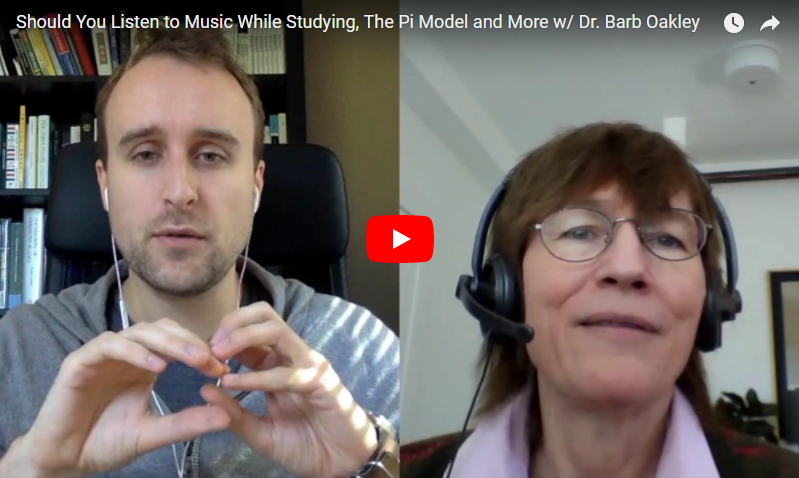The Pi Model and Learning How to Learn with Dr. Barbara Oakley
Dr. Barbara Oakley is a professor in Oakland University and has a PhD in Systems Engineering. Professor Barbara Oakley knows firsthand how it feels to struggle with Math. She flunked her way through high school math and science courses, before enlisting in the army immediately after graduation.
When she saw how her lack of mathematical and technical savvy severely limited her options — both to rise in the military and to explore other careers — she returned to school with a newfound determination to re-tool her brain to master the very subjects that had given her so much trouble throughout her entire life.
In her book “A Mind For Numbers” – Dr. Oakley lets us in on the secrets to learning effectively — secrets that even dedicated and successful students wish they’d known earlier.
In this interview with Dr. Oakley by Scott Young they talked about a number of interesting topics on how to learn effectively.
Scott Young did the “The MIT Challenge“, where he attempted successfully to learn the MIT’s 4-year computer science curriculum without taking classes, and “The Year Without English“, where he went to four countries with a friend to learn four languages in one year.
Here are some interesting bits from the interview:
Scott: So I wanted to start with a small issues that I think is quite an interesting one and the research on should you listen to music while you’re studying?
Dr. Oakley: That’s an interesting question and it’s kinda funny because when I speak in public that’s always one of the biggest questions I have and I think it’s because we often hear that you shouldn’t listen to music but the interesting thing is that if you go an look at the research on whether or not you should listen to music you can find research that supports pretty much any position you’d like to have supported!
So if you don’t like music you’ll find research that says no, don’t listen to music and you’ll find other research that says that it’s quite alright!
The only things that research says for sure is that you shouldn’t listen to super loud music when you’re trying to study and if the music has lyrics and you’re trying to do anything verbal (reading) you may not want to listen to music because the lyrics will interfere with learning.
Scott: After all the research, through your course Learning How To Learn (where you worked with millions of students) so what do you think is the most useful piece of advice that is the most infrequently applied when it comes to learning?
Dr. Oakley: It’s unquestionably the idea of chunking. Chunking is a way of gaining procedural fluency in whatever topic you’re trying to become an expert in. To explain that, let’s take something simple like backing up a car. So when you first back up a car it’s so hard, do you look behind you? Do you look in the side mirror? Do you look in the front mirror? It’s very difficult and you might be thinking, I will never be able to back up a car.
But within a few days or a week or two, you begin to learn to back up the car. In fact, after a little bit, you can do it while you’re talking to your friends or listening to the radio. It’s super easy. So backing up a car has become one united neural chunk in your mind so all you have to do is call that into your working memory. Because it’s one thing, it doesn’t block out other parts of your working memory so you can actually do other things at the same time.




